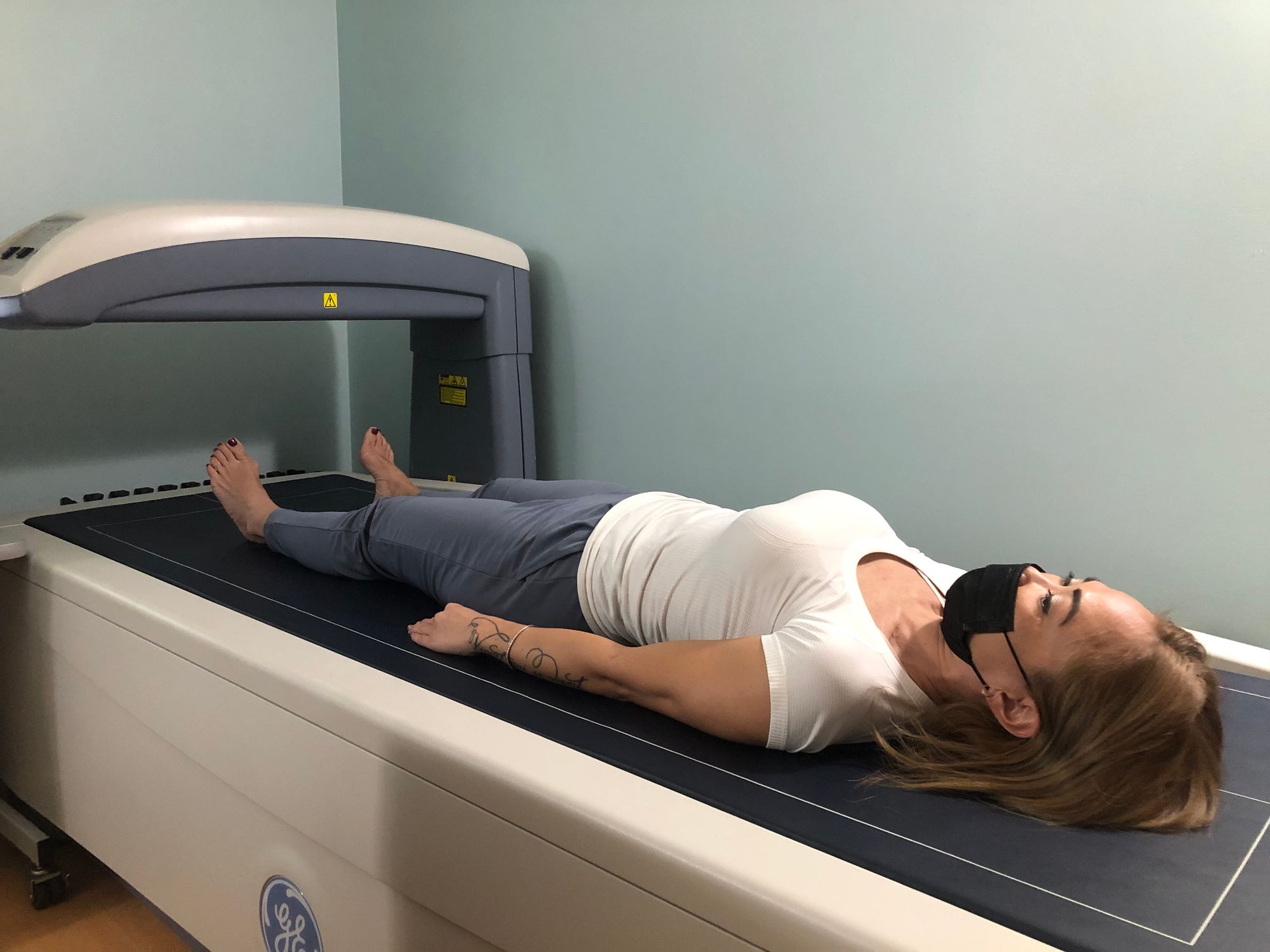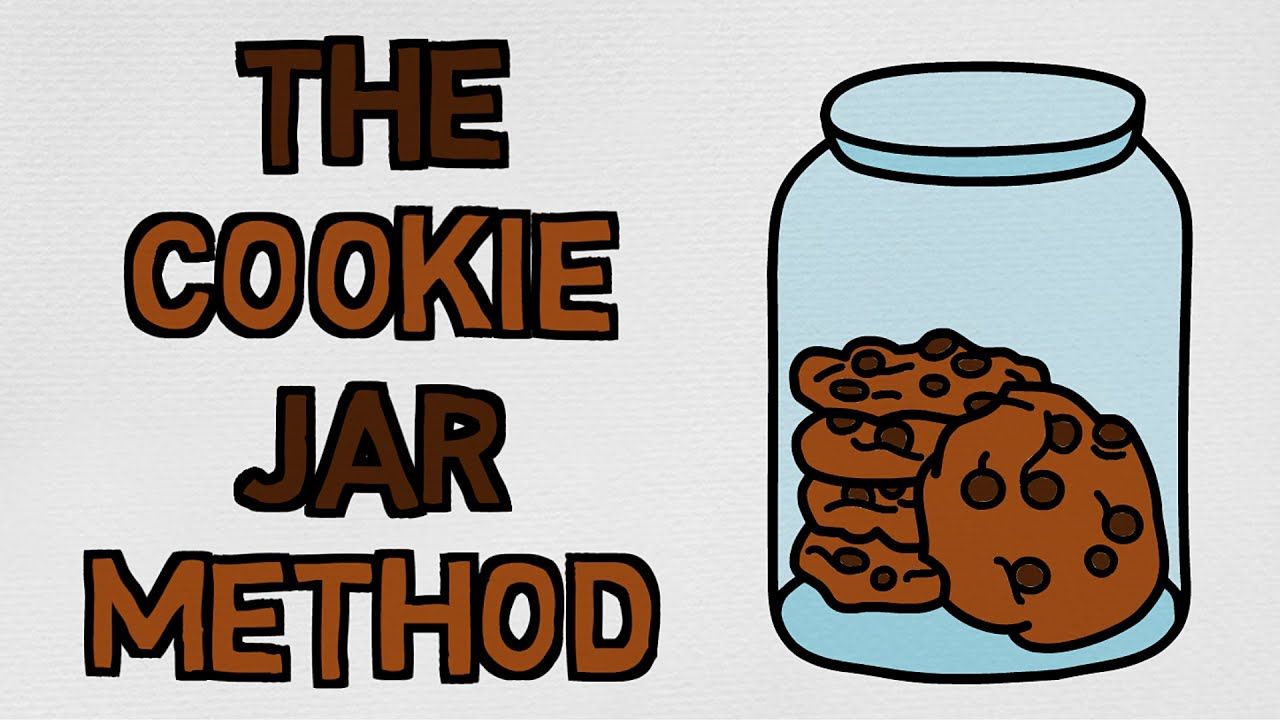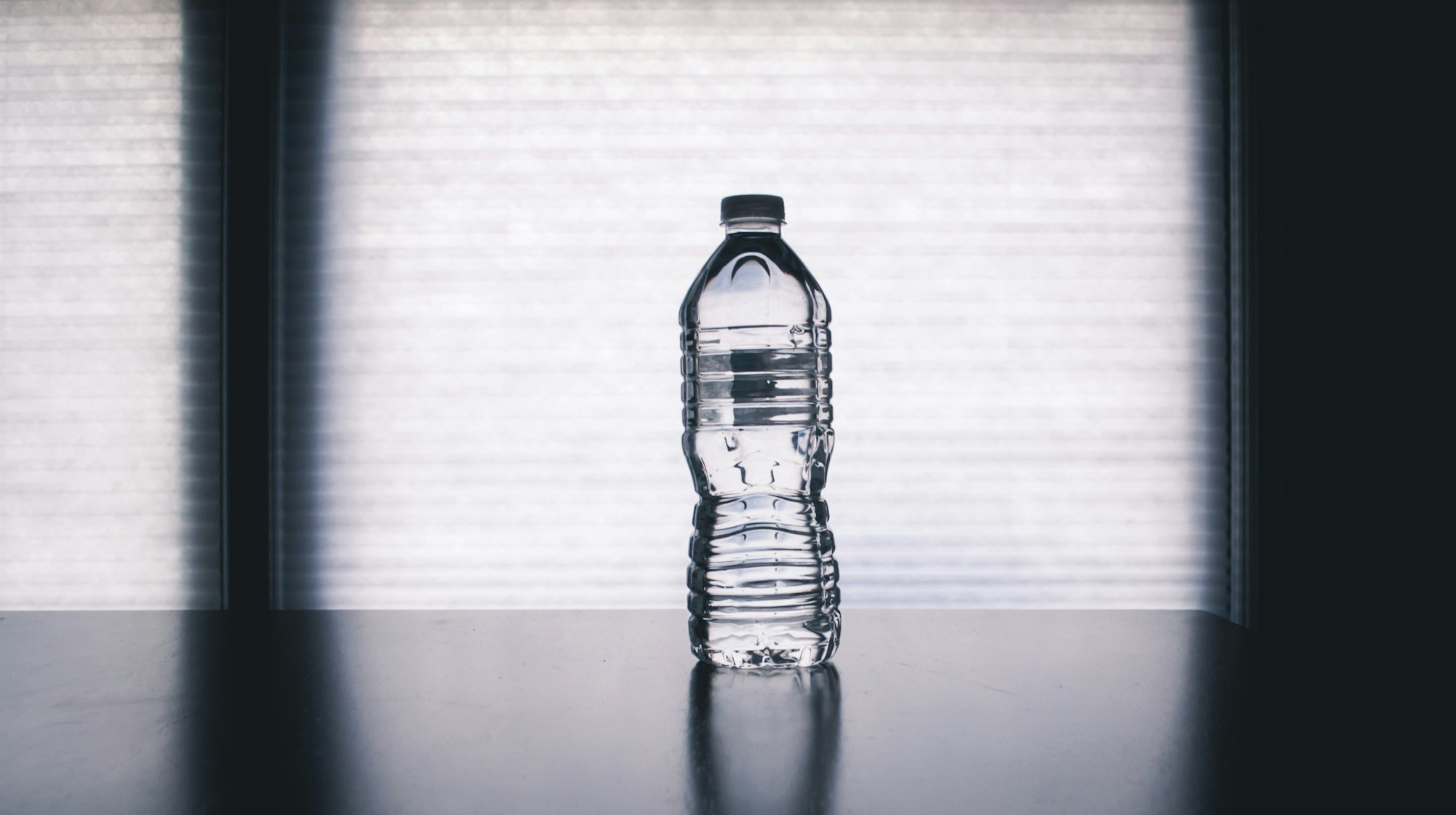At this point in my life, I don’t partake in holiday festivities unless goaded by close relatives. I tend to find celebrations taxing for a variety of reasons: holiday travel, overeating, family squabbles, etc. That being said, this Thanksgiving was shaping up to be like any other day for me. I would eat the same food, focus on the same work, do the same exercises, and go to sleep at the same time. All of these excluding one actualized. Namely, I did not eat the same food. Rather, Thanksgiving kicked off a spontaneous 5-day water fast.
Why?
So why did I choose to do this? Was it to rebel against the holiday that results in the most overeating? No, but that did give the experience some extra spice.
You see, I don’t ever own much food at any given time. I order my food once a week from a local chef. After dinner on Tuesday, I noticed my fridge only had enough meals to get me through the following day or so. I knew that this wouldn’t be enough notice for my chef to complete my order in a timely manner. I certainly could have bought some groceries, but refrained. I haven’t cooked in some time and have a sparse supply of cookware. I also didn’t want to eat out for so many days.
Suddenly, it hit me. I was so concerned about eating, but why did I really need to eat in the first place? I could fast for a few days. This was bold coming from someone who never intentionally fasted. Maybe I didn’t eat for 24 hours out of necessity while camping, but I have no vivid recollections.
Fasting is both an ancient practice and increasingly popular trend. I avoided it because I figured that I would lose all my “gains.” However, I’m not training for anything right now. What’s the worst that can happen? After looking up a few Reddit threads and YouTube videos, my interest only increased. I learned that the fasted body goes through many biological processes that benefit longevity. Of course, fasting also burns fat, but weight loss was not a primary driver for me as I’m quite content with my current body composition.
My brief research settled it. I would start my water fast (only consuming water and salt) Thursday night. The 5-day or 120-hour fast would terminate on Tuesday night. To make my experience a bit more objective, I also scheduled two DEXA scans: one for Friday at the beginning of the fast, and one for Wednesday after the fast
Intentions

To help keep myself honest, I wrote down some intentions for the fast.
Longevity
- From my research, fasting proves efficacious for many important bodily functions. The body goes through different cleansing processes. Most importantly autophagy, which is cell repair and translates from Latin to “self-eating”. Ketosis, where the body burns fat rather than carbohydrates, is another part of the process. This makes sense to me from an ancestral standpoint, so much so that I don't really concern myself too much with the underlying biology. It just makes sense that the human body is designed to endure fasting. Moreover, it seems that the absence of fasting would suggest you're not exercising an important part of your biology. Maybe this will make me feel really good. Maybe there are some underlying benefits that I cannot feel. What I do know is that bodies are designed for extended fasts, and bodies become stronger with moderate stress. Here, I defer to the “use it or lose it" truism. I think it applies here. Even, if I don’t feel amazing, I think I will practice extended fasts moving forward. Hopefully, with time, I can dial in exactly what kind of fasting works for me.
Body Fat
- I’m already lean. I don't need to lose weight, but I don’t mind. In fact, I would quite like to add some definition to areas that appear to have some stubborn fat stores: my face and lower abdomen.
Convenience
- Due to Thanksgiving, ordering my food proves difficult. Tuesday evening will be the earliest I can get food again, which is conveniently 5 days from now. Of course, I’ll also save a few dollars in the process.
Test of Will
- I'd like to see how I do with this challenge. I don't anticipate this being too difficult. I typically eat out of necessity more so than I do out of hunger. I can get away with skipping meals and not noticing. I also do not have a fascination with food as evidenced by my rather dull, routine diet. No matter, this sort of undertaking involves some degree of mental and spiritual fitness, I'd like to see how robust mine is.
Test of body
- Physical endurance is important. I enjoy comfort, but I also enjoy knowing that I'm not soft. How does one test his metal these days? As ever, you slay a dragon. A metaphorical dragon at the least. You must get uncomfortable and see how you fair. There is something elemental about physical stress. It's romantic and practical at the same time. I try and stay comfortable because it promotes self-preservation. But, I like knowing that I can break myself. I don't just stop because I'm simply uncomfortable. I can push as hard as I want to. To the point of death. So long as you have the power to break yourself physically, you are in a good place. It means that your will is superior to your physical and that indicates that you can always give your best effort. This is all anyone can hope for.
Occupy time
- I figured this would give me a nice project for the long weekend. I'll have something to show for my time. It'll at least give me a healthy dose of life experience.
Daily Journal: My notes from each day of the fast
Day 1
I got my DEXA scan in the late morning. By this time, I had fasted for about 18 hours. Things felt fine. I had only skipped breakfast at this point. Energy tapered in the afternoon. No hunger pangs all day.
Day 2
I did not sleep well the previous night. Maybe I slept for two hours. I felt energized despite rising at 3 AM. From my research, I suspect my body realized that I hadn’t eaten in over 24 hours and began releasing elevated levels of adrenaline to help me kill some beast for food.
I took advantage of all my nocturnal energy and got a lot of work done. I then walked for 6 miles and got in a 45-minute upper body workout. I will say that I had to go lighter in the gym and my muscles felt considerably more sore than usual. I followed the lift with a 10-minute meditation. A kickass meditation I might add. No Rolodex of inane thoughts, just placidity. I felt good on Day 2, and my fasting intimidation started to wane.
Day 3
I slept well. I did have to raise the thermostat as I started to feel cold. I got a lower body workout in. Felt strong enough in the gym. Overall, I felt fine, but I was more depleted energy-wise than the day prior.
Day 4
Sleep was okay, but I did have an unusually intense nightmare. Hiked for 45 minutes. I got a massage to help move some blood and promote biological processes.
Day 5
I slept terribly, and I woke up with an elevated heart rate. As the day progressed, the heart rate normalized. I got in a 60-minute upper body lift. I didn’t do much else during the day, yet I felt quite restless. In fact, Day 5 was the most difficult for me. I imagine the anticipation of breaking the fast is what got to me. I started to count the hours during Day 5 more than at any other point. I broke the fast with a cup of warm bone broth. An hour and a half minutes later I ate 8oz of 90/10 ground beef cooked with butter. Counter to the claims of many Redditors, the food did not taste abnormally good. It tasted normal.
Data and Interpretation

Here are some measurements. The first table includes measurements that I took at home with a tape measure and scale. The second table includes the notable measurements from my DEXA. The DEXA has even more granular information that I did not include.
Of course, all these measurements are subject to error. Even DEXA scans, which are an exceedingly accurate method to calculate body fat and lean mass can have significant error. You can easily cheat DEXA scans too. Just drink a lot of water.
Table 1
|
Measurements taken at
home (inches, pounds) |
|
||
|
|
11/24/2022 |
11/30/2022 |
Dif |
|
Weight |
180.4 |
170.2 |
10.2 |
|
Left Bicep |
15.625 |
15.375 |
0.25 |
|
Right Bicep |
15.875 |
15.5 |
0.375 |
|
Right Leg |
24 |
23.25 |
0.75 |
|
Left Leg |
24 |
23.25 |
0.75 |
|
Right Calf |
14.375 |
14.5 |
-0.125 |
|
Left Calf |
14.625 |
14.75 |
-0.125 |
|
Waist (pants) |
31.75 |
31.375 |
0.375 |
|
Waist (actual) |
30.625 |
29.875 |
0.75 |
|
Neck |
15.625 |
15 |
0.625 |
|
Left Forearm |
12.875 |
12.375 |
0.5 |
|
Right Forearm |
13 |
12.75 |
0.25 |
Table 2
|
Measurements taken at DEXA
clinic (inches, pounds) |
|
||
|
|
11/24/2022 |
11/30/2022 |
Dif |
|
Weight |
181.2 |
172.4 |
8.8 |
|
Body Fat % |
13.5 |
12.4 |
1.1 |
|
Fat Tissue |
24.6 |
21.6 |
3 |
|
Lean Tissue |
150 |
145 |
5 |
|
Bone Mineral Content |
6.7 |
6.6 |
0.1 |
|
Visceral Fat |
0.36 |
0.5 |
-0.14 |
|
Body Fat Tissue Trunk |
10 |
8 |
2 |
|
Body Fat Tissue Legs |
9 |
8.6 |
0.4 |
|
Body Fat % Trunk |
12.3 |
10.2 |
2.1 |
|
Body Fat % Legs |
14.9 |
14.7 |
0.2 |
|
Lean Mass Trunk |
70 |
69 |
1 |
|
Lean Mass Legs |
49 |
47 |
2 |
|
Waist |
32.7 |
31.7 |
1 |
I lost anywhere between 8 and 10 pounds of body weight. That’s quite a lot for 5 days. Yes, much of it was water weight and glycogen stores in your muscles, but either way, you can certainly see a difference in my before and after pictures, unfortunately not included in this article.
My stomach flattened out and ab definition improved markedly. My face leaned out too. I lost about 5 pounds of lean mass compared to 3 pounds of fat. I’ll take that ratio. Notably, most of the fat loss was from my trunk. That may have accounted for some of the added definition I was seeing. Interestingly, visceral fat (the “bad” fat around your organs) increased from .36lbs to .5lbs. This is within the margin of error, but I can imagine the body wanting to store more internal fat when in a survival state.
All my circumference measurements dropped as is to be expected. Most dramatically, I dropped about an inch from the waist and ½ an inch from the neck.
12.4% body fat puts me in the 96th percentile for people of my gender and age. I’ll take that.
Takeaways

It wasn’t too bad. As long as you go in with confidence and have a track record of sticking to your commitments, I think any healthy person can do a 5-7 day fast with no problem. It probably helped that I didn’t have any food in my house when I did this, but hunger really wasn’t the challenge. The challenge for me was breaking from the routine. Things got a bit mundane without the routine of food. Even if you only spend 15 minutes on each meal, it breaks up your day into distinct chunks.
One nice thing about not eating is that you don’t deal with post-meal lethargy (more dramatically titled “food coma”). I can see why people who practice Intermittent Fasting and One Meal a Day claim to have more sustained energy levels.
Each phase of fasting and new sensation made me aware of my body in a unique way. Additionally, I placed great trust in my body. Even when things didn’t feel great, I trusted my body to stabilize, and it didn’t let me down.
David Goggins annoys me most of the time, but his “cookie jar method” works well here. This is an experience you keep in your cookie jar. In other words, when things get tough, you can remember different hard things that you persevered through and pull on those experiences as motivation. Maybe I’ll wind up in a survival situation one day and this experience will help drag me through it.
The utility of the DEXA scan impressed me. It provides a lot of interesting metrics, and I intend to get them somewhat regularly moving forward. It gives you some hard numbers on where your body is at. DEXAs might be something you consider doing once a year or more.
Tips For Those Interested In Fasting
I learned a lot about fasting, and I think I have some useful information for those that might want to give it a try.
- Follow a keto diet for the 24-48 hours prior to fasting. This helps you get into ketosis and makes the transition to fasting more gradual. I did this, and I suspect that it attributed to my success.
- Consume some salt. I just used my table salt, but I think it helps keep your mental acuity up.
- Consume some electrolytes. I bought an electrolyte liquid (zero calories or sweeteners, just the basic salts) to add to my water. I took it, but it was quite unpalatable. There are a ton of products out there, so maybe you will find a better one.
- Stay busy. I would have preferred to have done this during a normal week when I was busy with meetings and projects rather than a holiday weekend. It would have been easier to keep my mind off the fast.
- For longevity purposes, I think 2-3 day fasts are enough to derive the full benefit. Anything beyond that is for additional fat loss. When I fast again, I will likely do a 2-3 day fast. Of course, 5-7 days looks more impressive on paper. It might be worth trying once.
- Write down intentions to keep you on track.
- If you have significant body fat, you can fast considerably longer than someone lean. So, if you are already lean, don’t think you can crush a 14-day fast as a fat guy can. Check out this guy who fasted for 382 days.
- Caffeine withdrawals. I don’t regularly consume caffeine, so this was not an issue for me. However, if you are like most people, you will have caffeine withdrawals. This can be a good time to detox, so you might consider consuming your caffeinated beverages for a less orthodox fast.
- Take Acetaminophen if you need a painkiller. Ibuprofen should be taken with food.
- Exercise. Common advice is to lay off the intensity. I agree with this, but so long as you don’t go above 85% intensity, I think you should be fine.
- Drink as much water as you feel you need. Don’t aim for an arbitrary amount.
- Break the fast with some bone broth. Wait at least an hour then eat some lean beef.
- If an extended fast (over 48 hours) seems daunting, consider starting small with a 24-hour fast.

